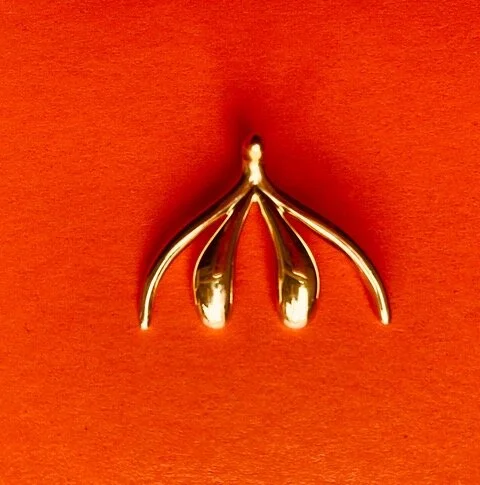A city full of sex, but starved of intimacy, infrastructure, and honesty.
Illustration Julian Lucas ©2025
There are a lot of things Pomona has come up short on, affordable housing, street maintenance, functioning city council meetings. But sex? Not one of them.
If local birth rates are any indication, people in Pomona are still having sex frequently. And while California’s birth rate is in freefall, Pomona stubbornly remains more fertile than most. Proof that people are clearly having sex, even if the city would rather host one of its 100-plus church services or fundraise for another banquet hall than admit it.
According to LA County Public Health, Pomona’s birth rate clocks in at 15.3 per 1,000 residents, higher than the county average of 13.2. Among teens, it’s even starker: 27.6 per 1,000 girls aged 15 to 19, compared to 18.9 countywide. That’s not just a statistic, it’s a mirror. A reflection of what happens when a city avoids honest conversations about sex, desire, and health.
But while Pomona might be fertile, it’s far from sexually free. Because for a city that’s clearly having a lot of sex, it’s remarkably bad at talking about it, let alone building infrastructure to support the kind that’s consensual, safe, joyful, or non-reproductive. Quantity doesn’t equal quality.
Let’s not confuse high birth rates with high standards of sexual health. While people are clearly connecting, Pomona still treats sexual wellness like it’s a hobby for coastal elites. There’s no civic blueprint for intimacy. No pleasure-positive clinics. No public campaigns around consent. No queer-affirming sex ed. And so, people navigate sexuality in silence, shame, or complete misinformation.
You can buy a pastel vibrator at Target now, but try finding a doctor who won’t flinch when you mention using it.
It’s a wellness failure. You can’t find a decent salad within city limits. And no, the ‘salad bar’ at the all-you-can-eat buffet doesn’t count unless you think pre-shredded iceberg soaked in preservatives is a vegetable. That’s what happens when a city neglects care, not just for bodies, but for connection. We don’t talk about sexual health as joy or nourishment. We talk about it, if at all, as a risk. As pathology. As something to survive.
Holt Avenue Has a History—Whether You Admit It or Not
Any honest conversation about sex in Pomona has to include Holt Avenue. Known as “The Blade,” this stretch has been an economic undercurrent for over a century. In the 1920s, when Pomona was a booming citrus and rail hub, the city was already home to brothels and independent workers.
Yet some longtime residents insist sex work “started” in the 1960s, right around the time Black families began arriving after the Watts Uprising. This wasn’t about chronology. It was about visibility, and discomfort with who gets to be seen, heard, and policed.
Sex work didn’t begin with Black and brown residents. It simply became harder to ignore. And when visibility makes people uncomfortable, history will usually get rewritten.
Pomona didn’t inherit repression, it invented its own after white flight. It just got better at outsourcing the blame.
Sex Ed in a City That Barely Teaches Civics
Only 68.5% of Pomona adults over 25 have a high school diploma, nearly 10% below the LA County average. That gap doesn’t just show up in job markets or college stats. It shows up in how we teach (or don’t teach) people about bodies, boundaries, and intimacy.
Pomona Unified’s sex ed, when it exists, still smells like 1990s abstinence pamphlets. It’s medically outdated, culturally tone-deaf, and structurally evasive. In that vacuum, porn becomes the curriculum, and it’s a bad teacher.
Most students here don’t graduate knowing how to communicate desire, negotiate boundaries, or even name their anatomy. They know how to panic. They know what shame feels like. And if they’re queer, disabled, or gender nonconforming? The system didn’t write them in.
But there’s a crack in the silence.
Earlier this year, students in the AP Econ & Government class at Pomona High wrote op-eds as part of a civic engagement project. Many praised The Pomonan—yes, this one, for giving them access to honest, nuanced conversations about sex, power, and autonomy. Journalism filled the void the school system wouldn’t touch.
When the city fails to educate, the streets, the screens, or the substack step in. This time, it wasn’t Pornhub. It was The Pomonan.
Touch Starvation in a City Full of Desire
Pomona knows how to reproduce. But do we know how to connect?
In a city with over 100 churches, is anyone even allowed to try?
Touch starvation is real. Ask the elderly. Ask single mothers. Ask queer teens dating in secret, afraid of expulsion. Ask men numbed by loneliness, or women who haven’t been looked at tenderly in years. We are a city of bodies craving contact—but trained to fear it, or legislate it out of existence.
A City Obsessed with Desire—And Even More Obsessed with Controlling It
Here’s where it gets unmistakably Pomona: while bodies collide in private, the city itself has morphed into a sanctified landscape. Over 100 churches and counting. Strip malls, old garages, and warehouse corners now bear pulpits.
Faith is fine. But Pomona hasn’t just embraced religion—it’s outsourced civic life to it. Arts programs, housing initiatives, even food distribution, many now run through church infrastructure. That shift is not neutral.
When the only institutions growing are ones that frame desire as sin, repression becomes policy.
Pomona doesn’t regulate sex because it’s dangerous. It regulates sex because it doesn’t trust people to want without guilt.
So What Now?
We don’t need to moralize. We need to mobilize.
Comprehensive, pleasure-centered sex ed, rooted in real bodies, real joy, and real consent.
Free, shame-free health services, especially for Black, brown, queer, low-income, and undocumented communities.
Decriminalization and dignity for sex workers because survival isn’t immoral, and labor is labor.
Public space and language for intimacy, touch, and care.
Because Pomona doesn’t have a sex problem.
It has a denial problem. A repression problem. A problem with pleasure that no sermon can fix.
So yes, Pomona is horny.
But horny isn’t the crisis.
Pretending purity will protect us? Now that’s delusional.
Julian Lucas, is a photographer, a purveyor of books, and writer, but mostly a photographer. Don’t ever ask him to take photos of weddings or quinceaneras, or any other events because he will charge you a ton of money you couldn’t even make payments on.














